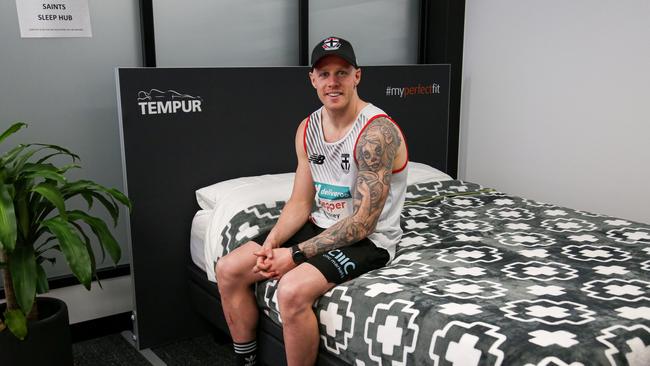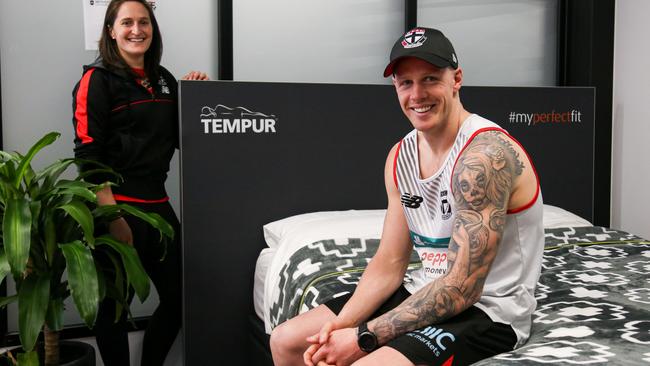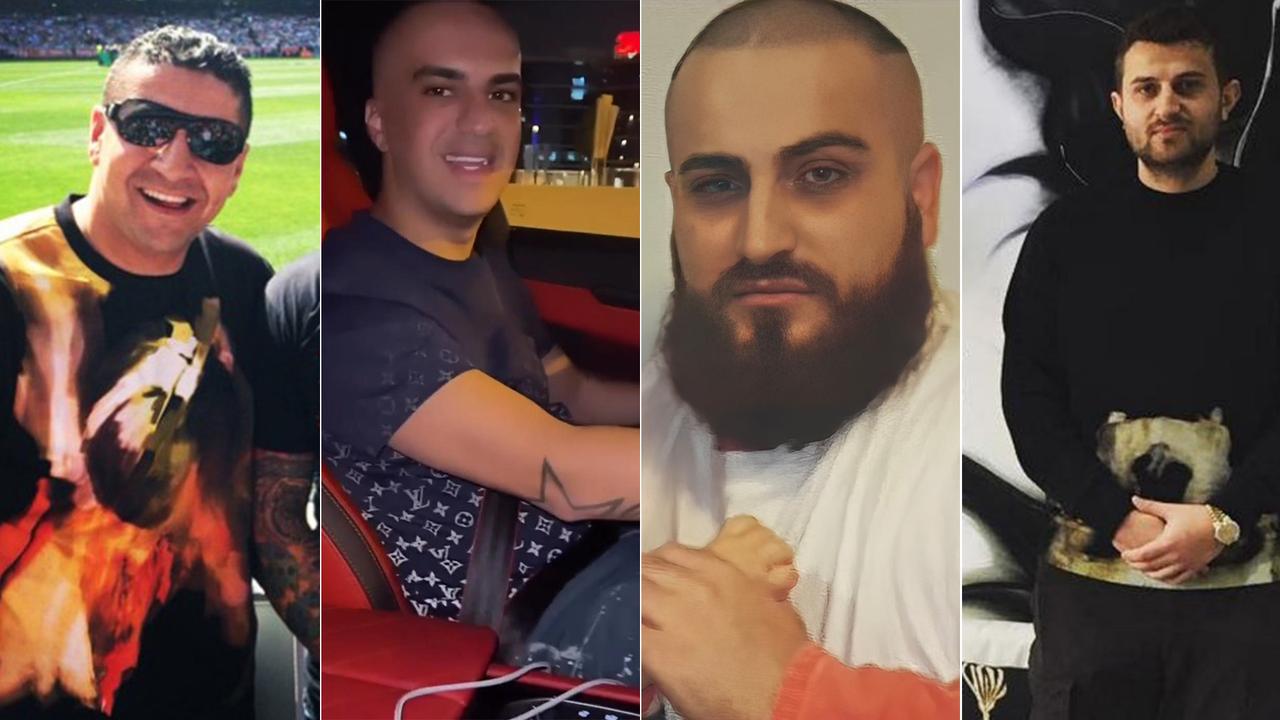AFL clubs turn to sleep coaches for player wellbeing
AFL clubs are turning to sleep coaches to tackle depression, stress and anxiety in players but their tips could also help you.

Victoria
Don't miss out on the headlines from Victoria. Followed categories will be added to My News.
AFL clubs are turning to sleep coaches to improve players’ wellbeing and performance in a move that may also have benefits for the general population.
An exhaustive study of AFL players has revealed half the symptoms of depression suffered by elite athletes can be explained by poor sleep, while high levels of anxiety and stress are also due to a lack of slumber.
Tracking the sleep patterns of St Kilda and Collingwood’s male footballers has also opened a potential new frontier in combating mental health issues, with doctors finding the monitoring of players’ snoozing can be used to predict and help concerns such as anxiety and depression that some players are reluctant to disclose.
The Australian-first Monash University research also reinforced the strong links between poor sleep and mental health issues in the wider population — and the importance of getting a good night’s sleep.
Having examined 68 players on the clubs’ lists, Monash’s Dr Elise Facer-Childs said sleep and mental health problems are exacerbated in elite athletes due to the pressures of injury, high training loads, selection, contract uncertainty, media scrutiny, travelling and the anticipation of competition.
“If we look at elite athletes, they are a subset of the population that are really striving for marginal gains, so anything that we can do with this population to improve is going to help,” Dr Facer-Childs said.

“If you can improve sleep, everything will get better, both physically and mentally.
“It’s so good to study performance in this population because you can get that high end of the spectrum and look at 1-2 per cent differences which, in that population, is very substantial, and transfer that down to the general population.”
Results published in Journal of the American College of Sports Medicine, Science in Sport and Exercise revealed poor sleep accounted for 51 per cent of depression symptoms detected among the players.
Of the other mild and moderate mental health symptoms detected, the Monash researchers found 42 per cent of stress-related issues and 31 per cent of anxiety symptoms among footballers was related to their lack of quality sleep.
The study of St Kilda and Collingwood players took place in late 2019 and 2020 — before the Covid pandemic made an impact — using clinical-quality sleep monitors, asking players to keep daily sleep diaries and using clinical questionnaires to diagnose conditions such as insomnia and sleep apnoea.
While sleep diaries were found to be weak at predicting health impacts, the researchers found wrist-worn monitors were good, and questionnaires such as the Insomnia Severity Index were even more accurate.
About 15 per cent of the AFL players were deemed to be at risk of insomnia and 42 per cent reported poor sleep quality and high daytime sleepiness, both of which are slightly higher than rates in the general population.
Dr Facer-Childs — who also works at St Kilda where she has implemented a Saints Sleep Hub equipped with a bed, relaxing lighting and calming music — believes all AFL clubs should employ a sleep coach to improve their players on- and off-ground performance.
As the AFL increasingly grapples with mental health concerns among players, Dr Facer-Childs said examining sleep may open the door to much wider issues.
“They are under immense pressure both physically and mentally and the last few years has seen a really good step towards talking about mental health issues in this group,” she said.
“To me, it’s crazy that sleep hasn’t been given the level of importance that it deserves in this space yet.
“We’re much better at supporting athletes with their mental health in the last few years and teams now have psychologists, they have nutritionists, physios and everything. I think that every team in the future should have a dedicated sleep coach to be able to help the players in this area.
“We know that sleep is essentially linked to every you know physiological and biological process that we go through.”
Originally published as AFL clubs turn to sleep coaches for player wellbeing




